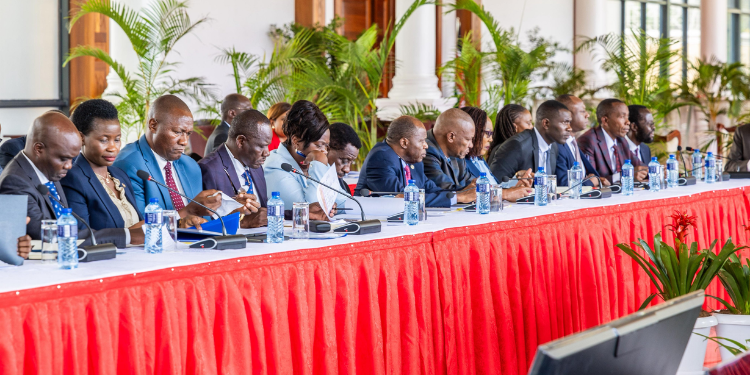The Cabinet has approved the reinstatement of Kenya Pipeline Company (KPC) into the privatization programme, paving the way for the partial sale of government shares in the energy parastatal.
In a meeting chaired by President William Ruto at State House, Nairobi, on Tuesday, July 29, the cabinet said the move is aimed at democratising ownership through the Nairobi Securities Exchange (NSE) and unlocking KPC’s full commercial potential.
“The decision reflects the government’s policy shift toward reducing its role in doing business and instead enabling the private sector and industry experts to drive growth, efficiency, and innovation,” read the dispatch in part.
“KPC, a strategic player in Kenya’s energy supply chain, has maintained a strong profitability record and holds significant asset value. However, the Cabinet noted that the company has not yet reached its optimum performance and market value, largely due to bureaucratic constraints and public sector inefficiencies.”
The Cabinet noted that bringing in private capital and professional expertise is expected to inject new energy into the company, modernise operations, and position KPC as a regional logistics and energy powerhouse.
It further noted that similar moves in the past have yielded transformative results.
“Safaricom, Kenya Commercial Bank, and KenGen are prime examples of formerly State-controlled entities that became high-performing companies following privatisation, driving shareholder value, expanding regionally, and creating thousands of jobs,” the dispatch stated.
“The divestiture of KPC is expected to follow this path, boosting investor confidence and supporting the development of Kenya’s capital markets.”
Also Read: Court Orders Kenya Pipeline and NEMA to Pay Ksh3B for Oil Spill Damages
According to the cabinet the approval marks a shift from state dominance in commercial enterprises to a model that embraces private sector-led growth, operational discipline, and accountability — ultimately ensuring that public resources are better used to deliver essential services.
This comes after President Ruto, while speaking at the Market Open ceremony at the London Stock Exchange in Paternoster Square, London, on July 2, 2025, said that Kenya Pipeline will be listed on NSE through an Initial Public Offering (IPO) before the end of 2025.
According to him, this will offer “investors a unique opportunity to deploy capital in one of Kenya’s most strategic infrastructure enterprises.”
“As a government, we have also made a strategic decision to broaden the appeal of Kenya’s stock market to both local and international investors by earmarking key State assets for privatisation through Initial Public Offerings at the Nairobi Securities Exchange,” Ruto said.
“We are committed to a structured, time-bound programme that identifies and prepares a strong pipeline of key government assets for privatisation through the stock exchange or enhancement through private sector participation.”
Also Read: Kenyan Youth to Receive Ksh6,000 Monthly After Cabinet Approves Program
Cabinet Backs Reforms to Regulate Religious Organisations
Meanwhile, the Cabinet approved recommendations from the Presidential Taskforce on Religious Organisations — a landmark move aimed at safeguarding the integrity of religious practice while curbing exploitation.
The proposed reforms, developed in response to the Shakahola tragedy, place religious leaders at the centre of accountability efforts, with an emphasis on self-regulation rather than State control.
Key proposals include enacting a legal framework to govern religious organisations, establishing a Religious Affairs Commission, and strengthening umbrella faith bodies for better coordination.
The model combines institutional autonomy with supportive oversight, and it calls for leadership standards, reforms in religious broadcasting, and civic education to promote tolerance and prevent extremism.
Implementation will be supported by a multi-agency collaboration involving security agencies, interfaith platforms, and educational institutions.
New Measures to Fast-Track Road Projects and Clear Pending Bills
To address pending bills, the Cabinet approved further measures to accelerate momentum in the roads sector.
This builds on the successful rollout of the road financing policy through the securitisation of the Road Maintenance Levy Fund (RMLF).
The fund has already disbursed Ksh64.2 billion—settling 40% of verified contractor claims from 575 contracts covering 393 projects.
To deepen this innovative model of infrastructure development, the Cabinet approved an additional payment of up to 40%, bringing the total settlement to 80%, on the condition that contractors extend the final payment deadline by another 120 days.
These measures have resolved long-standing financial obligations, unlocked stalled projects, improved contractor cash flow, and ensured continuity in infrastructure development nationwide.
Follow our WhatsApp Channel and X Account for real-time news updates.



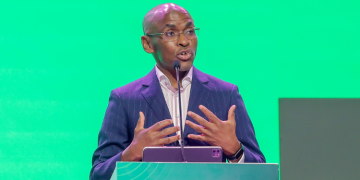

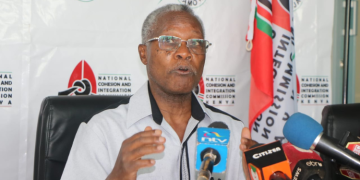
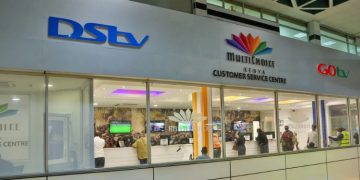



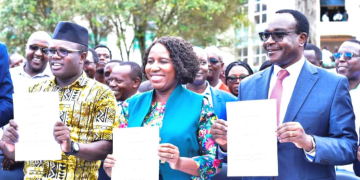






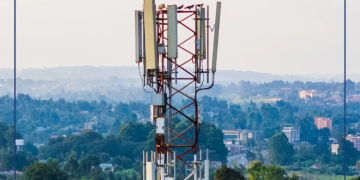

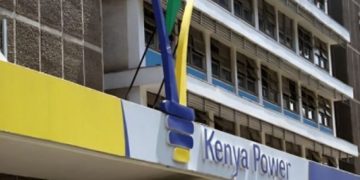

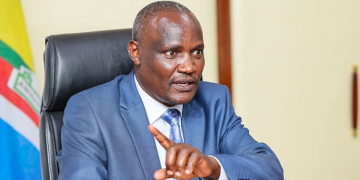

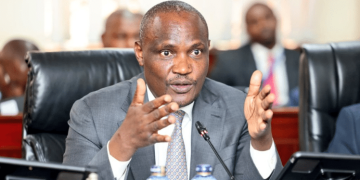



























![Senator Allan Chesang And Chanelle Kittony Wed In A Colourful Ceremony [Photos] Trans Nzoia Senator Allan Chesang With Channelle Kittony/Oscar Sudi]( https://thekenyatimescdn-ese7d3e7ghdnbfa9.z01.azurefd.net/prodimages/uploads/2025/11/Trans-Nzoia-Senator-Allan-Chesang-with-Channelle-KittonyOscar-Sudi-360x180.png)




















